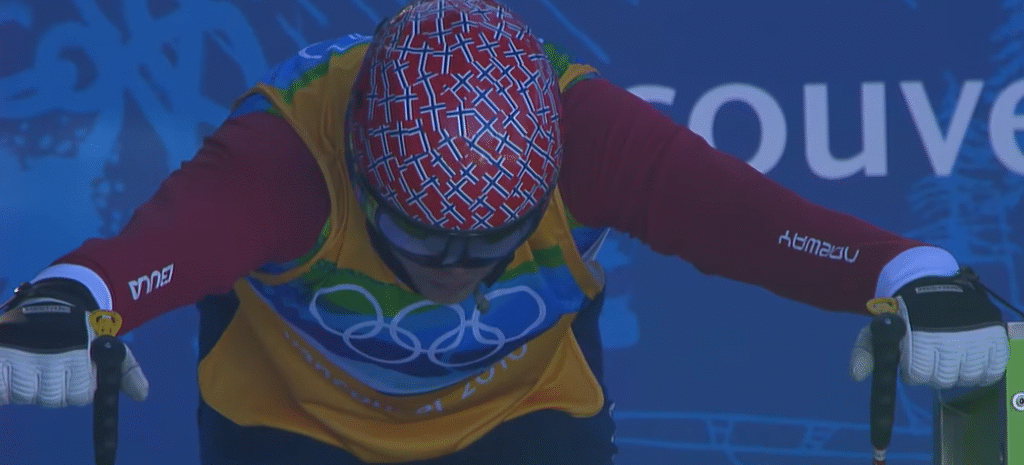The tragic death of Audun Grønvold, a name that for decades embodied pride, tenacity, and a special fortitude on icy slopes, has devastated Norwegians in recent days. His death after a lightning strike during what should have been a tranquil cabin trip has shocked the nation and the sports community.
The story of Audun Grønvold developed like a well-timed descent, gaining incredible momentum, overcoming obstacles, and motivating thousands of people in the process. He was raised surrounded by snow and influenced by the cadence of skis slicing through icy landscapes after being born in Hamar in 1976. He was already winning national downhill titles by his early twenties, which was especially noteworthy considering the caliber of Norwegian alpine talent at the time.
Grønvold’s smooth transition into freestyle skiing, a field with less knowledge at the time but enormous potential, was what really stood out about his journey. His bronze at the 2005 World Championships in Ruka was more than just a podium result; it was a wake-up call for ski cross in the country. After winning the Ski Cross World Cup two years later, he established himself as a competitor and sport ambassador.
Audun Grønvold Bio Table
| Detail | Information |
|---|---|
| Full Name | Audun Grønvold |
| Date of Birth | February 28, 1976 |
| Place of Birth | Hamar, Norway |
| Date of Death | July 16, 2025 |
| Age at Death | 49 |
| Nationality | Norwegian |
| Height | 1.86 m |
| Sports | Alpine skiing, Freestyle skiing (Ski Cross) |
| Olympic Medal | Bronze – Vancouver 2010 (Men’s Ski Cross) |
| World Championship Medal | Bronze – Ruka 2005 (Ski Cross) |
| Notable Titles | National Champion in Downhill (2003, 2004); Ski Cross (2005, 2006, 2010) |
| Retirement | 2010 |
| Post-career Roles | Coach (Norwegian Ski Cross Team), Media Consultant, Entrepreneur |
| Cause of Death | Lightning strike while on cabin trip |
| Survived By | Wife and three children |
| Club | Vang Skiløperforening |
| Reference | Wikipedia – Audun Grønvold |

Vancouver followed. The culmination of years of unwavering perseverance was Grønvold’s bronze medal at the 2010 Winter Olympics, which marked a turning point. Norway’s collective memory is imprinted with the image of him standing on the podium, his shoulders wide and his eyes sparkling with pride. His triumph represented more than just athletic achievement; it also represented growth, flexibility, and unwavering faith in one’s own direction.
He didn’t turn to anonymity after retiring that same year due to growing injuries. On the contrary. He continued to play a significant role in forming the next generation by coaching the national ski cross team from 2010 to 2012. He had a particularly long-lasting effect on young skiers, teaching them the mental acuity needed to succeed in addition to the racing mechanics. Former athletes characterized his coaching style as “incredibly versatile,” combining a forward-thinking outlook with traditional Norwegian discipline.
He started Grønvold Sports, a business that sells top-notch gear to ardent skiers, through strategic alliances and an entrepreneurial spirit. He provided his voice to sports media and helped to bridge the divide between communication and competition while working as a consultant for Egmont Publishing. Very few athletes are able to make such a smooth transition from competition to life after competition.
His legacy was woven together by his outstanding accomplishments, love for his family, and cultural significance. Unlike many Olympians, who are still defined by a single race or outcome, Grønvold stood for development, coaching, and a passion for sports at every level. He maintained his local roots while his profile expanded globally by frequently participating in public forums, youth gatherings, and ski meets.
He demonstrated a unique ability to promote cross-discipline training by combining his expertise in both alpine and freestyle disciplines. His techniques garnered interest from winter sports federations throughout Europe in addition to Norway. In fact, ski cross athletes like Brady Leman of Canada and Alex Fiva of Switzerland had previously compared Grønvold’s racing intelligence to their own innovations, calling it “strikingly similar.”
Tragic events on July 12, 2025, felt incredibly unfair. Lightning, one of nature’s rarest and most unpredictable forces, brought down a man who had mastered fast descents and wild ski cross competitions. His injuries were too serious even after he was taken to the hospital and given urgent care. Following the official confirmation of his death on July 16, tributes began to pour in from all over Norway and beyond.
His life provides significant insights into the grieving process. A mosaic of strength, humility, and unending progress, Audun was more than just a medalist. He represented a generation of Norwegians who were not afraid to reinvent themselves. From national titles to Olympic medals, from public acclaim to private leadership, his career charted a course.
His death also sparked more general discussions about the unpredictable nature of nature and the uncommon but deadly dangers that former athletes, who frequently find refuge in isolated retreats, may encounter. Some support awareness campaigns about lightning safety in outdoor recreation as talks about memorial initiatives in his honor continue. This is a minor but significantly better step that could save future heartbreak.
He is still very much present through his wife and three kids. His parenting has been characterized by friends as “extremely reliable,” present at all times, gentle, and joyful. “Watching him with his kids was like watching him coach—always composed, always encouraging,” said a close colleague. His family has become an inspiration to others in their grief, displaying fortitude akin to Audun’s own stoicism on the snow.
In the future, Grønvold’s influence will live on in the athletes he trained, the competitions he established, and the principles he upheld. His tale shows us that greatness lies not only in winning but also in persevering long after the applause has subsided. The lives that Audun subtly improved, rather than the races he won, may be his greatest accomplishment.
